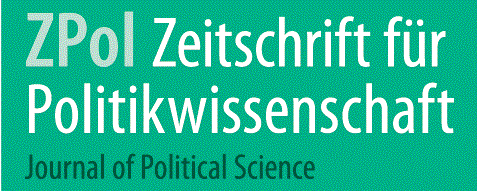“Seehofer is a loose cannon in energy politics. A cooling pond is what he needs.” These unflattering words were used by Garrelt Duin (SPD), minister of economy of Northrhine-Westphalia (NRW) as a comment on the Bavarian prime minister. Seehofer had managed once again to raise the political blood pressure of the federal republic of Germany. Winfried Kretschman, prime minister of Baden-Württemberg pointed to the “specific disposition” of Seehofer in search of an explanation.
But what had stirred this excitement, what had hap- pened? Prime minister Seehofer has quite a reputation to perform unexpected massive political U-turns from time to time. This is what happened on February 4th, when he declared, together with Christine Haderthauer (CSU), chief of staff in the state chancellory, that he would demand a moratorium for the plans to build new high-voltage electricity lines – energy highways – in Bavaria. “Nobody should think that you can do something of this kind against the population and the free state of Bavaria.” As he went on, existing plans were to be reconsidered, as there was a change of circumstance that had occurred with respect to the pending reform of the Renewable Energy Sources Act (“Erneuerbare-Energien-Gesetz” / EEG). Finally, it was to be checked whether transmission lines were actually needed. If there was a decreasing production of green electricity because of a reduction of the subsidies for renewable energies, existing plans would be obsolete.
Politicians of other regional states, and the opposition in Bavaria and in the Bundestag were unequivocal in their rejection of the Bavarian blockade. The Bavarian turnaround met massive criticism. But the political situa- tion in Bavaria followed its own logic. Bavaria was heading for local elections scheduled for March. The nexus between the erratic behavior of the CSU and the upcoming election was identified quickly. Indeed, there had been a growing tide of resistance against the “monstrous” transmission lines that were planned. Seehofer was portrayed to be an unchecked populist in an election campaign – an interpretation that seemed to fit patterns of perception that were accepted by many.5 General-secretary Jasmin Fahimi (SPD) even articulated that she perceived an “unprecedented level of political furor”.
Seehofers initiative caused irritation and hectical countermoves not only among party politicians. In February and March 2014, times got busy indeed in Bonn in Tulip Street. But what impact could the Bavarian local elec- tion have on the former capital city of Germany, what was the relation between the excitement in Bavaria and the one in Bonn? Bonn, Tulip Street is the seat of the “Bundesnetzagentur”, the regulatory authority and Fed- eral Network Agency for Electricity, Gas, Telecommunications, Post and Railway. The federal agency is known to many for its responsibility to regulate competition in the telecommunications and railway sector. But it is also responsible for network markets – including the electric sector. As a consequence of Germany’s “Energiewende”, this regulatory agency assumed an important role for improving and adapting the electricity grid infrastructure (“Stromnetzinfrastruktur”) and was assigned respective powers. Germany’s national electricity grid is not yet sufficiently prepared to cope with an increasing supply of green energy. As of today, the net- works are not fit to deliver large quantities of electricity derived from renewable energies across larger dis- tances. But green electricity is planned to substitute electricity generated by nuclear power entirely by 2022 and is planned to cover and ever-increasing share of electricity. Thus, many think it will be necessary to intro- duce superhighways for electricity. These superhighways for electricity should transmit electricity from the places where it is produced to the places where it is consumed. Usually this will be a north-south direction of delivery. The Federal Network Agency (FNA), the Bundesnetzagentur, is responsible for respective plannings, making the agency a central player in the Energiewende.
Autor
Stephan Zitzler ist Master-Absolvent des Masterprogramms „Politkmanagement, Public Policy & öffentliche Verwaltung“ der NRW School of Governance. Seine Arbeitsschwerpunkte liegen im Bereich der Politikfeldforschung und der Energiepolitik.
Diese und weitere Fallstudien finden Sie hier auf regierungsforschung.de in der Rubrik “Fallstudien” oder auf www.reformkompass.de.
Zitationshinweis
Zitzler, Stephan (2015): Loose cannon or political genius? The ramifications of the moratorium on grid expansion of the Bavarian state government. Erschienen in: Regierungsforschung.de, Fälle. Online verfügbar unter: https://regierungsforschung.de/loose-cannon-or-political-genius-the-ramifications-of-the-moratorium-on-grid-expansion-of-the-bavarian-state-government/





